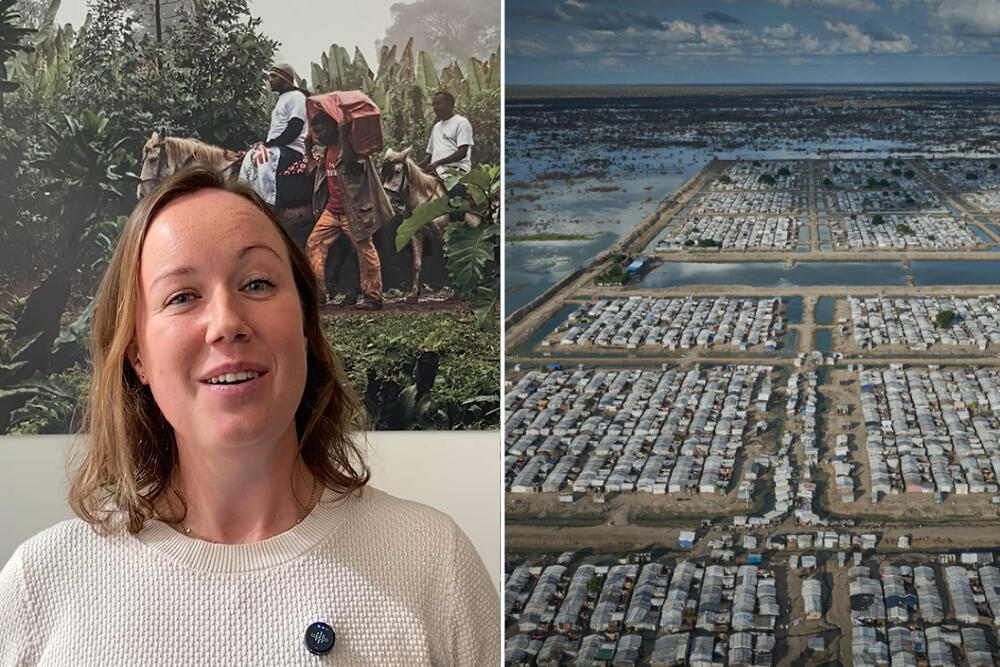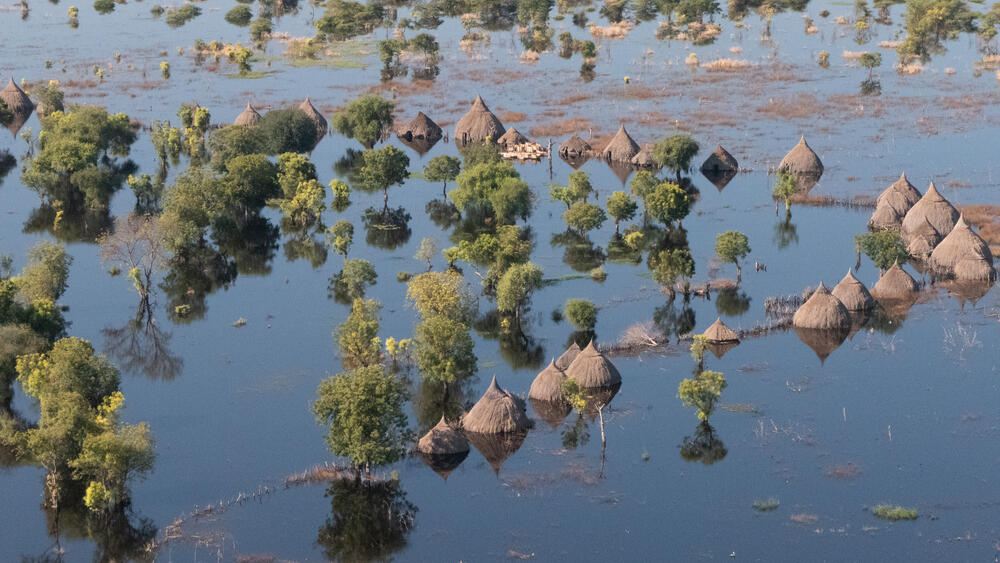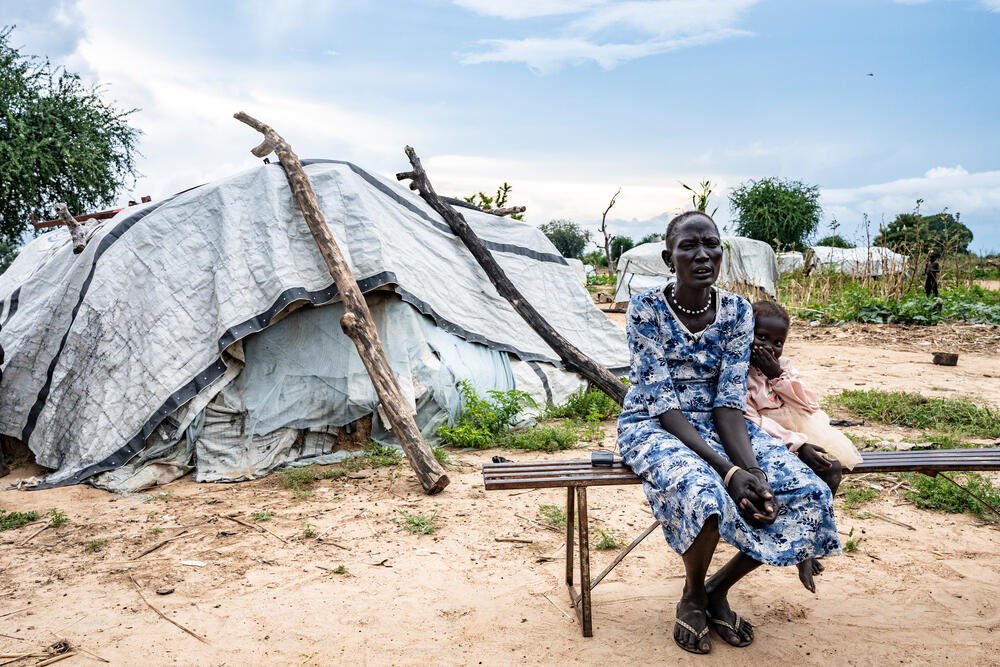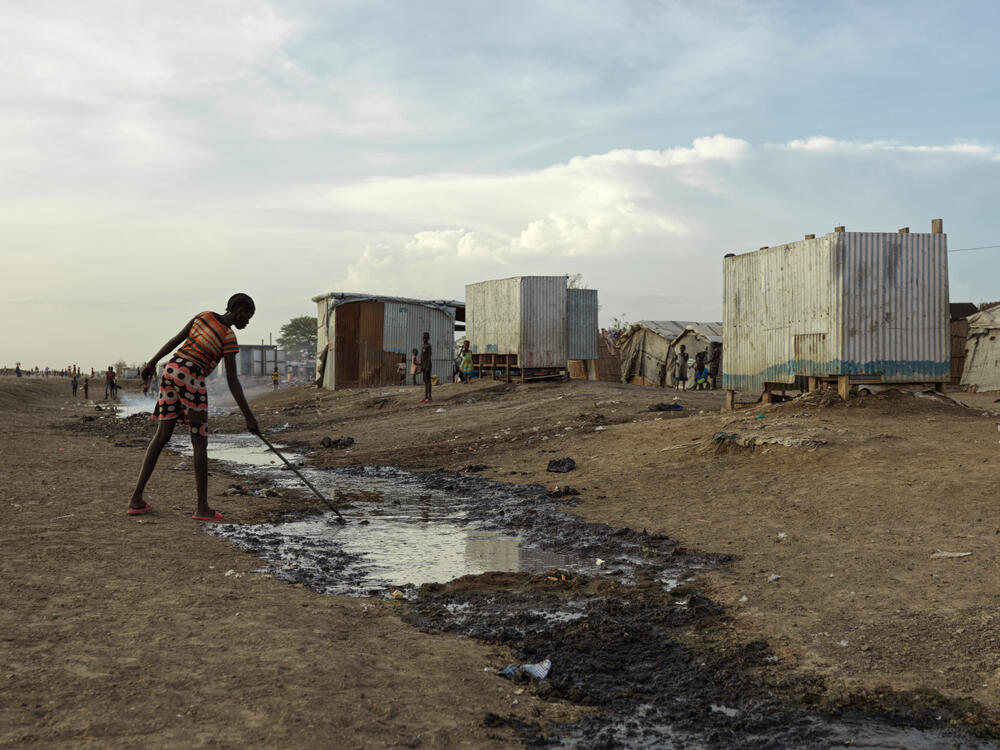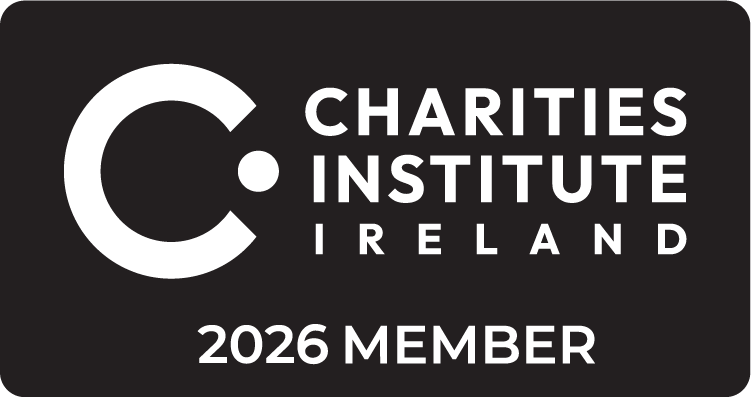Irish Doctor in South Sudan: Dr. Louise McKenna speaks about her MSF experience in Bentiu
6 May 2025
Dr. Louise McKenna, an Irish medical doctor, recently returned from her assignment in South Sudan, where she worked in the Bentiu IDP camp. In her role, she was faced with a range of medical challenges, including treating patients suffering from severe dehydration, advanced HIV, and severe malaria. The hospital served as a critical healthcare facility for individuals who had travelled long distances, sometimes from conflict zones in Sudan, to seek medical assistance.
Louise’s experience highlights the challenges of providing medical care in resource-limited settings, the stark contrast between South Sudan and her work in Ireland but also the vital impact of MSF’s work in South Sudan.
Help us provide vital medical care to those who need it most.
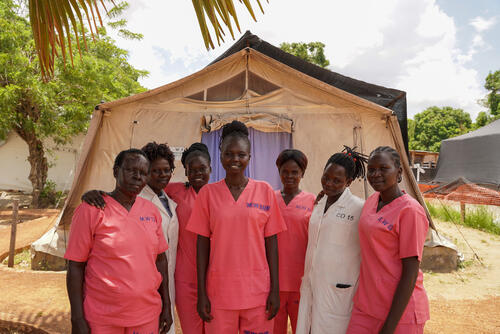
What’s a moment from your time in South Sudan that’s stayed with you?
"There are many moments that have and will stay with me. But one in particular was when we were finally able to send a young woman home after a six-week hospital admission with a severe infection that resulted in her losing the power of her limbs, and she even had difficulty talking and swallowing. Her little six month old baby girl, Nyayup, was with her, along with her sister as a carer, and they really became part of our ward family and team. There were times that she was very unwell and I didn't think she would make it. But with ongoing care and support of the team and her family, she slowly regained strength, her speech, ability to eat, and was able to sit up before we happily discharged home with the support of our community nursing team. We were sad to see them go but very happy that this was a good-news case. The last I heard was that she was continuing to recover well, and I hope that's still the case."
How is being a Medical Doctor (MD) in South Sudan different from Ireland?
"I think the sense of responsibility and working for the best possible outcome, without causing harm, for each patient is the same wherever one finds themselves. Ireland is very different, especially from a resource point of view. We're very lucky to have access to an abundance of high-level diagnostic and treatment options. In South Sudan, unfortunately there is a lack of resources, including public health infrastructure and secondary level hospitals. In working as an MD in South Sudan, I found myself relying heavily on the resources available and especially my own clinical skills."
What’s the biggest challenge you face as a doctor there?
"There were many daily challenges in Bentiu. The environment alone was difficult, as temperatures often exceeded 40C. So it was very important to ensure we kept well hydrated during our often long and arduous shifts.
Our MSF hospital was the only secondary healthcare unit for many miles and has a very large catchment area, including people seeking safety and medical care from across the border in Sudan where there is an ongoing war. Many patients, including adults and children, arrived incredibly unwell after traveling for many hours and sometimes days, to reach the hospital. Our resources were limited, and often patients arrived incredibly unwell, with advanced conditions such as severe dehydration due to diarrhoea, advanced HIV, severe acute malnutrition, severe malaria and other conditions. Many of these cases I found particularly harrowing, especially as they were often preventable conditions."
What does MSF’s mission—of acting fast, staying independent, and speaking out—mean to you?
"I think a good example of this was when there was a cholera outbreak in our hospital and state. We were made aware of the likelihood of an impending outbreak weeks beforehand and were able to prepare our teams and resources to respond, with training and education, as well as optimisation of supplies required and the hiring of extra staff.
Our advocacy team worked very hard in highlighting the need to respond quickly, to the local governing bodies, and as the situation worsened with increasing numbers of cases, MSF brought in an emergency response team to support our own team on the ground in providing care to sick patients, and to help bring the situation under control."
Why is it important that MSF is on the ground in South Sudan?
"In our area in the Bentiu IDP camp, just south of the border from Sudan, there are very limited facilities and resources available to local people. Many areas of South Sudan suffer from food insecurity, rising inflation, malnutrition, neglected tropical diseases, effects of climate change as well as the threat of violence.
Since the war in Sudan began in 2023, South Sudanese returnees and Sudanese citizens seeking safety often make long and dangerous trips to our hospital to access healthcare they would otherwise not be able to receive and patients are often extremely unwell on arrival."
What would you say to someone in Ireland wondering if their donation really helps?
"I can say that without MSF's presence in South Sudan, there would be many more areas that would have little or no access to essential healthcare. Between paediatric care, neonatal, adult, surgical, obstetric, mental health and community healthcare, MSF is saving lives every day in South Sudan, and in over 70 other countries worldwide every day. As well as providing essential medical care in emergencies, conflicts and austere environments, it also provides jobs to many national MSF employees, helping sustain local economies in countries where this may otherwise prove difficult. MSF counts on donations to keep its operations running, and every donation helps."
If you could say one thing to people back in Ireland about what you see every day in South Sudan, what would it be?
"I would say that it's incredibly sad that we still live in a world of such inequality. Many people are suffering every day, between food insecurity resulting in severe malnutrition and famine; neglected tropical diseases; increasing incidence of preventable infectious diseases, including HIV and tuberculosis; climate change resulting in severe flooding and destruction of peoples' livelihoods; and the risk of increasing violence and insecurity. We live in a country that has an extremely well-funded and equipped health system, and are very privileged. Perhaps we need to be more cognisant of the plight of others and to not forget how lucky we are to live in this country."
MSF in South Sudan
In July 2011, South Sudan became the world’s newest country after gaining independence from Sudan. The peace deal that led to the split also ended Africa’s longest running civil war.
